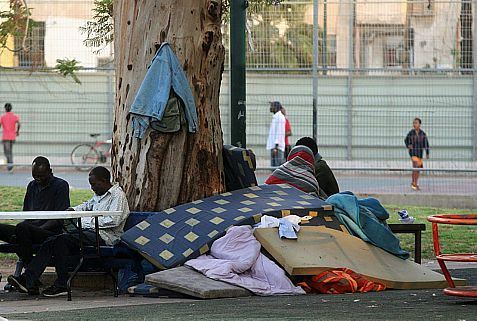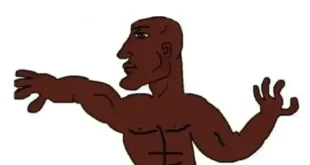Tzvi Ben-Gedalyahu
The Jewish Press
September 17, 2013
A unanimous and landmark Supreme Court ruling on Monday struck down a Knesset amendment to a law and declared that detaining African infiltrators for three years without trial violates their human rights.
The effect of the decision is that nearly 2,000 illegal Africans will be able to leave their Negev prison in 90 days and move freely in Israel, most likely to southern Tel Aviv – unless the government decides to deport them.
Within the 90-day period, the government can determine if the illegal immigrants are entitled to be recognized as those seeking asylum or simply left their home countries to seek a better standard of living, in which case they can be sent home.
The amendment to the Prevention of Infiltration Law violates what is known is Israel as the Basic Law of Human Dignity and Liberty, a concept that the High Court has exploited for several years to allow it to dictate policies that often are the opposite from what the Knesset had legislated.
The unanimity in the 9-0 ruling, including new Court President Asher Grunis who is viewed as being far away from the left-wing “bleeding heart” camp, underlined the conclusion that the amendment unquestionably violates human rights, despite the problems is poses to the country, as several justices noted.
However, Justice Grunis indicated that a shorter detention period would not be questioned by the court.
Justice Edna Arbel, who has sided dozens of times with “activists” and often against Jewish communities in Judea and Samaria, admitted that the decision “will not be easy” for the public to swallow.
She also concede that the decision will be a difficult blow for south Tel Aviv, whose residents have suffered a higher crime rate along with the flood of approximately 50,000 African infiltrators into the relatively poor neighborhood.
“Their cries are in our hearts; their pain is our pain,” she wrote, but Likud Knesset Member and Knesset Interior Committee chairwoman Miri Regev reacted, “There are judges in Jerusalem, but the pain is in south Tel Aviv.” She added, “The High Court has sentenced the residents of south Tel Aviv to living in fear and has given infiltration a green light.”
 Daily Stormer The Most Censored Publication in History
Daily Stormer The Most Censored Publication in History



